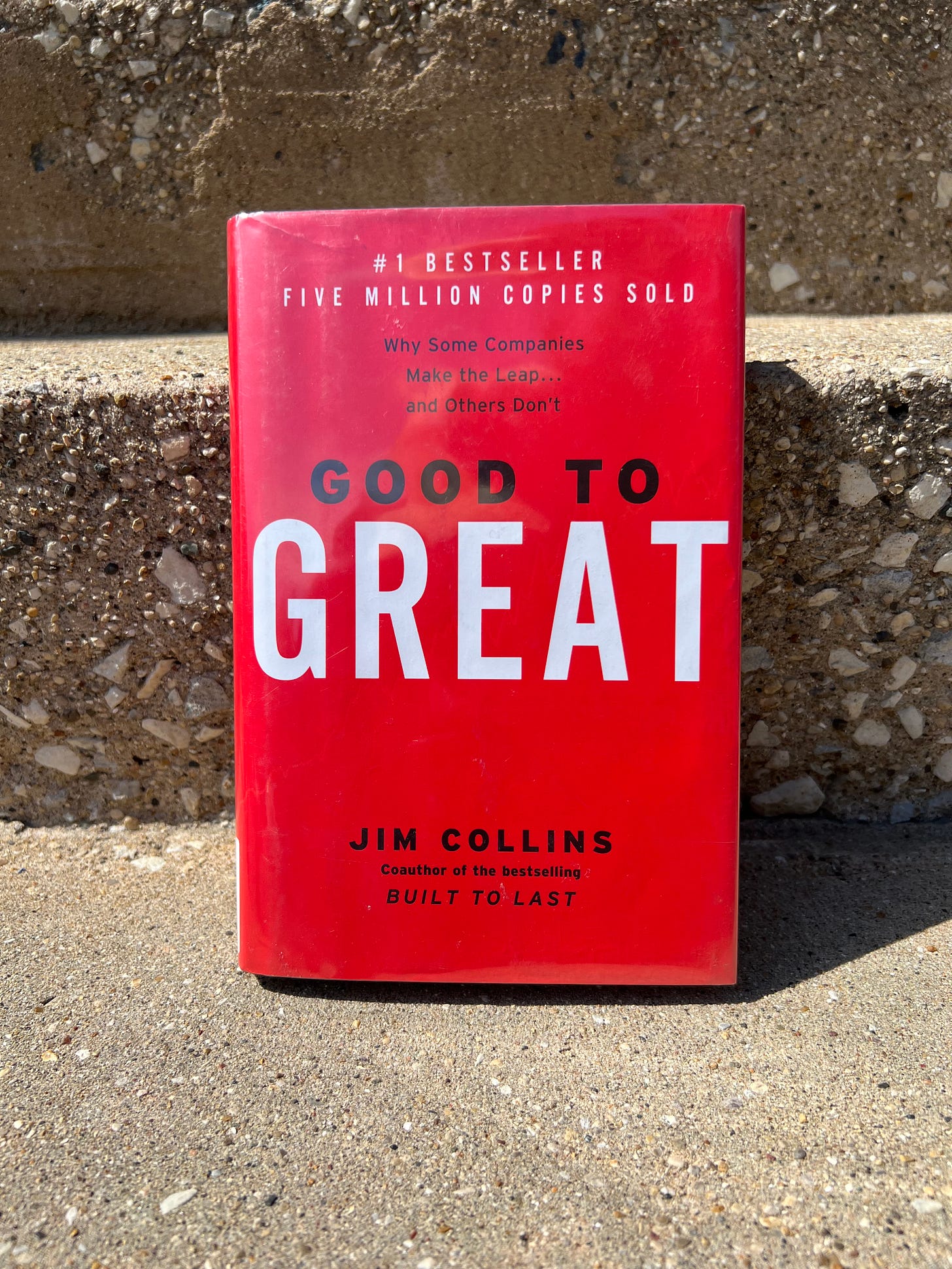My friend Jabari Young, who is an outstanding journalist at Forbes, has developed a signature tagline at the end of his interviews.
He’s stumped some of the biggest names in business, music and sports with his final query.
I introduced you to Jabari last November. He’s interviewed ballers such as Stephen Curry and billionaires like Steve Ballmer, musicians from Pharrell to Fantasia, gladiators Dwayne “The Rock” Johnson and Floyd Mayweather, and community leaders from Bishop T.D. Jakes to Senator Raphael Warnock.
At a minimum, Jabari’s signature question makes his famous subjects stop and think for a second or two longer than countless other redundant questions they’ve been asked.
“What’s the difference between good and great?”
Jabari expertly tailors the question for the person he’s interviewing. Each then provides expert insight from their successful vantage point.
Before asking, Jabari always sets up his signature tagline by informing his subjects of the source of his question. It comes from Jim Collins’ book “Good to Great.” Jabari describes it as one of the best business books of all time.
Jabari’s commitment to crediting Collins’ book and incorporating it as his tagline forced me to grow curious. The title has been on my reading list for almost a year.
I finally got my copy last Thursday.
Instead of paying for the book, I rented it and “Shoe Dog” from the public library, a practice I should do more often. I need to finish “10 Commandments of Black Economic Power” before focusing on “Good to Great.” But I can’t wait to dive in.
Another title, “The 5 AM Club” by Robin Sharma, skipped the line. I took advantage of another Audible promotion over the weekend. It gives me a three-month subscription for 99 cents. Unlike with a physical book, I can listen to audiobooks while I walk, drive, exercise or work around the house. I also can finish them.
The way I see it, digesting “The 5 AM Club” while I’m doing other things will only help me go from good to great.
That’s what consumes me, personally and professionally.
Based on where I am in my life, and how my friend Jabari raves about the book, I believe there’s plenty I can learn from “Good to Great.” Collins’ bestseller details why some companies stand the test of time while others fizzle and fade. But I anticipate picking up insight that can benefit me across the board.
The business principles within the book might perfectly align with our mission to grow Money Talks. But the truth is I know I can — and must — be better first as a man.
That’s really how I’m striving to go from good to great.
I’ve committed to many changes over the past two years. But I know I still have a long way to go before truly unlocking all that I’m capable of.
Overcoming procrastination and improving my time management skills could help me soar. But for too long, I’ve allowed those problem areas to linger like a stubborn sore. They’re bad habits I’ve held since childhood.
I know they’re holding me back. It’s up to me to do something about them — or I don’t want to go from good to great like I say I do.
I’m fascinated by how the world’s top CEOs structure their days. With demanding days, popular executives like Elon Musk and Bill Gates famously subscribe to timeblocking, or timeboxing. The scheduling method divides periods of time into smaller segments or blocks, which are then dedicated to completing specific tasks. Supporters swear by the method.
I’m striving to get there.
I can start by setting a bedtime and sticking to it. I’ve never prioritized sleep in a healthy way, and I wonder what will happen in my life once I finally do. Preparing for bed and not playing dominoes on my phone before rolling over could make an enormous impact as well.
My guess is prioritizing sleep will make it easier for me to develop and maintain a rigid morning routine. Ideally, it would start at 5 a.m. with prayer and meditation. Then stretching, push-ups and dumbbell curls. I’d take an early morning walk or make my way to the gym. Then I’d listen to an audiobook over breakfast.
Before 9 a.m., I will have poured into myself more than I used to in full months.
From there, I could begin focused work. With devoted time free of distractions, I might finish my work day by 3 p.m. daily. The rest of the night could be mine, to work ahead or unwind. I could even jump back into Spanish now that I’ve grown fluent with the language of money.
Only I still lack the requisite discipline.
But those are the actionable steps I can take to go from good to great.
Be sure to spend some time thinking about yours.









